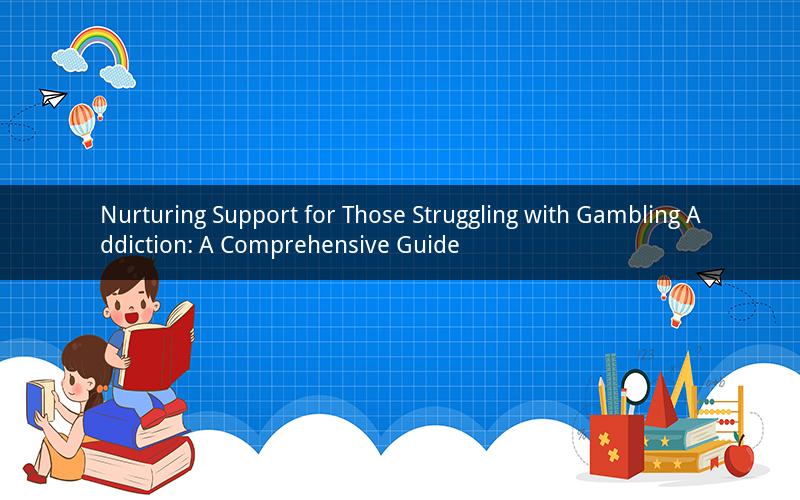
Supporting someone with a gambling addiction is a challenging yet vital role. It requires empathy, understanding, and a willingness to navigate the complexities of this condition. This guide will explore various strategies to support a loved one through their journey towards recovery.
Understanding Gambling Addiction
Gambling addiction, also known as compulsive gambling or problem gambling, is a chronic, progressive condition that affects an individual's ability to control their gambling behavior. It is characterized by an overwhelming urge to gamble, despite negative consequences. Understanding the nature of gambling addiction is crucial for providing effective support.
1. What are the signs of a gambling addiction?
Signs of a gambling addiction may include hiding gambling activities, borrowing money, lying about gambling habits, and experiencing financial, emotional, or legal problems due to gambling.
2. How does gambling addiction affect the individual and their loved ones?
Gambling addiction can lead to financial ruin, strained relationships, and mental health issues. It can also cause emotional distress for family and friends who are trying to support the addicted individual.
3. Is there a cure for gambling addiction?
While there is no definitive cure for gambling addiction, it is a treatable condition. With the right support and treatment, individuals can overcome their addiction and lead a fulfilling life.
4. What are some common treatment options for gambling addiction?
Treatment options for gambling addiction may include therapy, support groups, medication, and lifestyle changes. The most effective treatment plan is tailored to the individual's specific needs.
5. How can I help my loved one seek treatment for their gambling addiction?
Encourage your loved one to seek professional help by offering to accompany them to appointments, researching treatment options, and providing emotional support throughout the process.
Strategies for Supporting a Loved One with Gambling Addiction
1. Educate Yourself
Familiarize yourself with the basics of gambling addiction to better understand the challenges your loved one is facing. This knowledge will help you offer informed support and empathize with their struggles.
2. Be Empathetic and Non-Judgmental
Empathy is key when supporting someone with a gambling addiction. Avoid shaming or lecturing them, as this may worsen their feelings of guilt and isolation. Instead, offer a listening ear and express your concern for their well-being.
3. Encourage Professional Help
Encourage your loved one to seek professional help from a therapist or counselor specializing in gambling addiction. Offer to accompany them to appointments and provide emotional support throughout the process.
4. Establish Boundaries
Set clear boundaries to protect yourself from the negative consequences of your loved one's addiction. This may include limiting financial support, setting boundaries around communication, and seeking support for yourself.
5. Support Their Recovery Efforts
Encourage your loved one to participate in support groups and other recovery activities. Attend these meetings with them if possible, to offer additional support and understanding.
6. Be Patient and Understanding
Recovery from gambling addiction is a long and challenging process. Be patient and understanding as your loved one navigates their journey. Avoid pressuring them to recover at a pace that is too fast for them.
7. Take Care of Yourself
Supporting someone with a gambling addiction can be emotionally and physically taxing. Make sure to take care of your own well-being by seeking support from friends, family, or professionals if needed.
8. Celebrate Progress
Acknowledge and celebrate the small victories and progress your loved one makes in their recovery journey. This positive reinforcement can help keep them motivated and focused on their goals.
9. Encourage Healthy Coping Mechanisms
Help your loved one develop healthy coping mechanisms to replace the negative behaviors associated with gambling. This may include engaging in hobbies, exercising, or practicing mindfulness and relaxation techniques.
10. Maintain Open Communication
Keep the lines of communication open with your loved one. Encourage them to share their feelings and struggles, and be there to listen and support them.
In conclusion, supporting someone with a gambling addiction requires empathy, understanding, and a willingness to navigate the complexities of this condition. By following these strategies, you can help your loved one on their journey towards recovery and create a stronger, healthier relationship.